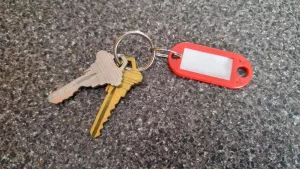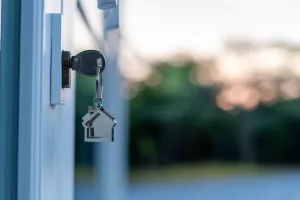What does Possession Date Mean?
In real estate, when you sell a property you will sell it with the understanding that a buyer will take the property at a certain possession date. Possession dates are usually a few weeks or a few months after the property is sold. This is also known as a completion date or closing date.
Real Estate Agent Explains Possession Dates
Possession dates are a negotiating term for buyers and sellers. Some sellers need a few months to find a new place to live so they may ask for something like 60 days possession. A possession date could be very negotiable if the price is high enough; for example, if a buyer offers $5,000 more than what the sellers were expecting, the sellers may agree to move early – perhaps the extra money is worth it. Possession can be as long or as short as both parties agree to. Bear in mind that these time-frames are often exact more of a guideline or request. Typically, real estate listings will have the following possession dates as options:

- Immediate: The buyer can have the property as quickly as their lawyer can do up the documents, which could be in as little as a few days. This typically means that the house is vacant and no one needs time to pack up and move out – the buyer can have it right away. There does need to be time to get conveyancing documentation from financial institutions and land titles, so immediate possession might not be possible. Be sure to check with your lawyer to make sure that this can actually be done. There may also be extra costs associated for a rush job.
- 15 days: This possession date usually happens with vacant properties and makes the seller look a little less desperate than an immediate possession. This could be just enough time for the lawyers to get the conveyancing done.
- 30 days: One of the most common possession dates. Thirty days often gives people just enough time to get packed and move out.
- 45 days: This arrangement is not commonly used because 30 or 60 day possession dates are often negotiable.
- 60 days: A common possession time for those who need a little while to find and purchase a new property.
- 90 days: Ninety days is often needed with properties that have renters in them or for sellers who feel it will take some time to move or find a new home. For example, tenants have the right to three months’ notice if they are on a month to month lease.
Those are the most common dates given on a real estate listing, but any time could be given.
Possession dates are typically written as 12:00 noon on the specific possession date. It is important not to put possession dates on holidays, weekends or during times when banks or lawyer’s offices may not be open. Choosing impossible dates can just cause problems with getting funds transferred and either postpone the actual possession or require money to be given over early without possession being granted. For more details see Considerations for Possession Day.
Why Does it Matter?
Possession dates are very important when purchasing and selling a property. Possession can make or break a deal because time is money. A seller who is looking for 30-day possession is not going to want 120 day possession. Waiting those extra months means that the seller is paying for the property for longer than she wants. Conversely, if a seller needs 90 days to find a new house and move out, moving out in 15 days may not be possible. The inconvenience of a shorter or longer possession may require a higher selling price to offset the timeline.

